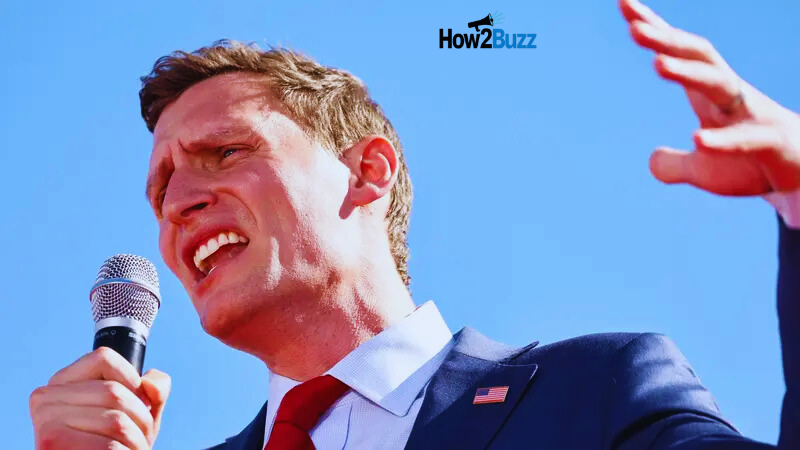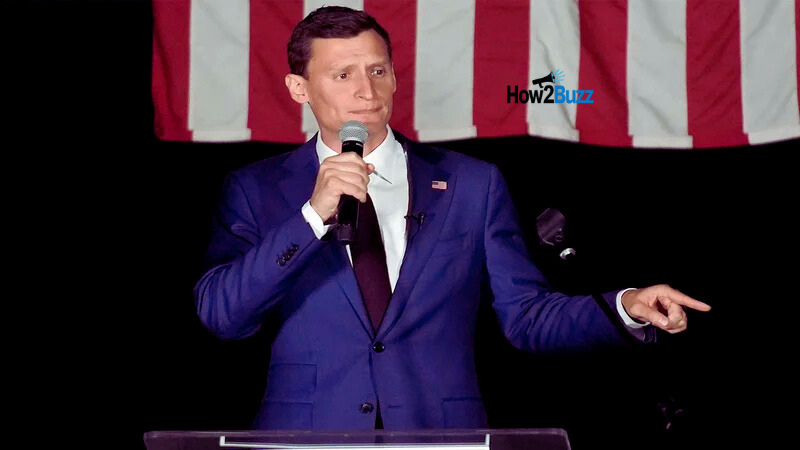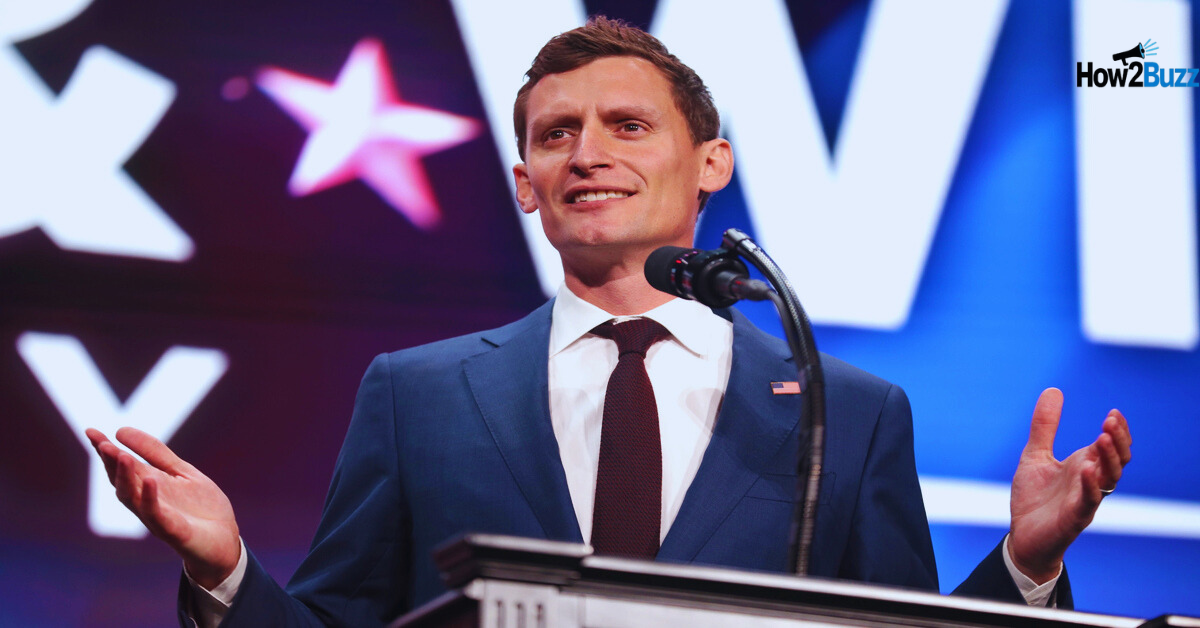Blake Masters is a name that frequently surfaces in conversations about innovation, entrepreneurship, and political reform. Whether you know him as the co-author of the bestselling book Zero to One, as a close ally of billionaire investor Peter Thiel, or as a Senate candidate who shook up Arizona’s political scene, Masters embodies the fusion of Silicon Valley intellect with conservative ambition. His journey reflects the modern blend of business acumen and ideological intensity—traits that have made him a controversial yet compelling figure.
His rapid rise from Stanford law graduate to the national political spotlight is no fluke. Masters is a calculated thinker with a deep belief in disrupting the status quo. With a background in tech and a passion for rethinking institutions, he stands at the intersection of entrepreneurship and governance. While opinions about his views vary widely, there’s no denying that Blake Masters represents a new breed of conservative thinkers—tech-savvy, unapologetically idealistic, and unafraid of the cultural and political battles of our time.
Blake Masters and the Future of Conservatism
Blake Masters has often been viewed as a poster child for the “New Right”—a conservative movement driven less by tradition and more by disruption. His Senate campaign in Arizona wasn’t just about winning a seat; it was about reshaping the narrative of what a modern Republican can and should be. With his strong stances on national sovereignty, tech regulation, and cultural issues, Masters brought a tech-savvy, youthful, and policy-oriented approach to a field often dominated by traditional rhetoric.
What sets Masters apart from many in his political lane is his commitment to ideas. He doesn’t just talk about problems; he offers comprehensive solutions rooted in economic and technological theory. He’s been vocal about America’s decline in innovation and productivity, arguing that regulatory excess and cultural decay are at the core. This perspective—while polarizing—has resonated with a growing demographic that wants more than slogans from their leaders. Masters’ approach suggests that conservatism’s future lies in pragmatism mixed with principled disruption.
Blake Masters in Tech and Venture Capital
Before his entrance into the world of politics, Blake Masters was already making waves in Silicon Valley. He co-authored Zero to One with Peter Thiel—a book that quickly became a must-read for aspiring entrepreneurs. The book wasn’t just a business guide; it was a manifesto that challenged readers to create truly novel solutions rather than incremental improvements. Through it, Masters made a clear case for “monopoly capitalism,” where innovation creates temporary monopolies that drive progress.
Working closely with Thiel, Masters took on a variety of roles at Thiel Capital and the Thiel Foundation. His understanding of startups, investment, and macroeconomic trends gave him a unique vantage point. He didn’t just critique the system; he worked within it, helping fund and shape companies that aimed to redefine industries. This experience in venture capital is more than a line on his resume—it informs his worldview and political priorities, especially regarding innovation policy, big tech, and educational reform.

Political Rise and Campaign Strategy
Blake Masters stepped into the political limelight when he ran for the U.S. Senate in Arizona, backed by Thiel’s significant financial support. Despite being a first-time candidate, he made national headlines due to his fresh, tech-driven perspectives and hardline conservative positions. The campaign leaned heavily on digital outreach, aligning well with his Silicon Valley roots, and focused on appealing to both Trump-aligned voters and younger conservatives disenchanted with establishment politics.
Masters positioned himself as a candidate who understood the 21st-century problems facing America—from border security and inflation to censorship and corporate overreach. His campaign wasn’t without controversy, particularly his remarks on race, abortion, and election integrity, which drew heavy scrutiny. Still, he managed to energize a voter base that was tired of the same recycled messages and craved intellectual engagement and policy-oriented discussion.
Educational Background and Early Influences
Blake Masters was born in Colorado and raised in Tucson, Arizona. He pursued undergraduate studies in political science at Stanford University, followed by a law degree from Stanford Law School. It was during his time at law school that he met Peter Thiel and began transcribing Thiel’s lectures, which eventually became the framework for Zero to One. These lectures didn’t just open professional doors for Masters—they fundamentally shaped his worldview.
Stanford, as a breeding ground for innovation and thought leadership, had a lasting impact on Masters. His academic background instilled in him a strong foundation in constitutional principles, business strategy, and philosophical inquiry. These early influences helped craft the ideological foundation he brings to both business and politics—a mix of libertarianism, realism, and idealism aimed at systemic reform.
Views on Technology and Innovation
Masters has been a vocal advocate for reclaiming America’s innovation lead. He believes that for too long, the country has prioritized financial engineering and bureaucracy over real technological progress. In his view, true innovation requires risk-taking, a tolerance for failure, and a culture that rewards creators over regulators. His critique is not limited to government inefficiencies—it extends to the educational system, the media, and even large corporations that he sees as risk-averse and stagnant.
From artificial intelligence to energy independence, Masters pushes for bold moves. He supports investment in nuclear energy, deregulating experimental drug treatments, and removing bureaucratic roadblocks for startups. He’s often said that America needs to “build again”—a phrase that resonates deeply with young professionals who feel that stagnation is the enemy of prosperity. It’s not just about dreaming big; it’s about executing smart.

Cultural Commentary and Media Presence
Blake Masters is no stranger to media scrutiny. His commentary on culture—particularly around masculinity, gender roles, and traditional family values—has often landed him in the crosshairs of liberal critics. He’s criticized what he calls “woke capitalism” and the decline of American values, framing these issues as central to national decline. While such views are divisive, they’ve also earned him a loyal following among cultural conservatives and libertarians alike.
On platforms like Twitter (now X) and in various podcast interviews, Masters blends intellectual analysis with punchy, sometimes provocative soundbites. His online presence reflects his belief in decentralizing influence and speaking directly to the people. He often bypasses mainstream media to talk directly to his base, using data-driven messaging and tech-forward strategies to maximize reach and impact.
Relationship with Peter Thiel
One cannot fully understand Blake Masters without discussing Peter Thiel. Their relationship began in a classroom but evolved into a deep professional and ideological alliance. Thiel not only co-authored Zero to One with Masters but also invested millions in his Senate run. They share a similar worldview: a skepticism of modern institutions, a belief in bold ideas, and a desire to rebuild American greatness through innovation and disruption.
Some critics have accused Masters of being a mouthpiece for Thiel, suggesting that his political platform mirrors Thiel’s interests too closely. However, supporters argue that their collaboration is built on mutual respect and shared vision. In any case, the Masters-Thiel alliance represents a powerful synergy between thought leadership and capital—two resources vital for anyone seeking large-scale reform.
Criticism and Controversy
Blake Masters is a polarizing figure. While many admire his intelligence and reform-minded goals, others see his rhetoric as extreme. His critics point to past social media posts and controversial statements that they claim reflect outdated or harmful views. Masters, for his part, often brushes off criticism as the product of a biased media landscape and insists his focus is on substance, not sensationalism.
Controversy, however, hasn’t slowed him down. In fact, it often seems to fuel his momentum. Masters thrives in combative environments where big ideas clash. He frames criticism as evidence that he’s challenging entrenched power structures, which plays well with a base that values authenticity over political correctness.
What’s Next for Blake Masters?
As of now, Blake Masters continues to be a relevant force in both political and entrepreneurial circles. Whether he launches another Senate campaign, joins a federal administration, or builds a new venture capital firm focused on mission-driven startups, one thing is clear: his journey is far from over. Masters has shown that he can move fluidly between the private and public sectors, leveraging insights from each to inform the other.
His next steps will likely involve continuing to shape conservative discourse, especially among younger Americans looking for substance and modernity. Given his age, network, and drive, Masters is well-positioned to be a major player in the decades to come—someone who might just redefine what leadership looks like in a rapidly changing America.
FAQs About Blake Masters
Who is Blake Masters?
Blake Masters is an American entrepreneur, author, and political figure known for co-authoring Zero to One with Peter Thiel and running for U.S. Senate in Arizona. He is a prominent voice in conservative tech and political movements.
What is Blake Masters’ political affiliation?
He is affiliated with the Republican Party and is often associated with the “New Right”—a younger, more tech-oriented faction of conservatism focused on reform and innovation.
What is Blake Masters’ educational background?
Masters studied political science at Stanford University and earned his JD from Stanford Law School. His academic background heavily influences his policy positions and writing.
What does Blake Masters believe in?
Masters supports technological innovation, deregulation, border security, and traditional cultural values. He advocates for rebuilding America’s capacity to innovate and compete globally.
Is Blake Masters running for of fice again?
As of now, there’s no official announcement, but many political analysts believe he may run again in Arizona or take a significant role in a future Republican administration.
Conclusion
Blake Masters is a multi-dimensional figure who defies traditional labels. Part entrepreneur, part ideologue, and part disruptor, he brings a rare combination of intellect, ambition, and conviction to the table. Whether you agree with him or not, Masters is reshaping conversations in business, technology, and politics. As the landscape continues to evolve, expect his voice—and influence—to grow stronger in the years ahead.



